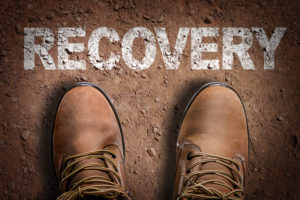Have the years of burning bridges after a bender taken its toll on your relationships? Are you tired of your physical health deteriorating or feeling guilty over letting down your kids?
You’ve finally come to the realization that your current life path will only lead to more self-destruction. You think it’s a good idea to attempt detoxification from the comfort of your home or loved one.
While it sounds good in theory the reality is far different. Do you realize there are risks associated with people who detox at home?
Should You Detox At Home
People struggling with addictions to alcohol and drugs go through tremendous highs and lows. One of the best things they can do is start the road to recovery. However, this journey is best begun in a facility with trained professionals.
While not everyone will experience all of the same withdrawal symptoms. There are specific symptoms linked to the detoxification for alcohol, benzodiazepine, and opiates.
Some of the withdrawal symptoms can put you or your loved one in danger if medically trained personnel do not intervene. Or you may begin to crave the substance so badly that you are unable to control how or where you get your next fix. Thereby placing yourself in danger.
These are some of the reasons why detoxing at home should not be attempted.
Alcohol Withdrawal Symptoms
According to MedlinePlus alcohol withdrawal occurs after a person drinks large amounts of alcohol for an extended period of time. The more frequently you consume alcoholic beverages the greater likelihood of experiencing withdrawal symptoms once you stop drinking.
The symptoms may present themselves 8 hours or days after your last alcoholic drink.
Common symptoms include:
- Anxiety
- Clammy Skin
- Depression
- Headaches
- Irritability
- Rapid Heart Rate
- Shakiness
However, if a person’s alcoholic dependency is bad enough a withdrawal symptom called delirium tremens can occur. This symptom is severe and poses great health risks.
Delirium Tremens causes “mental and nervous system changes” according to MedlinePlus.
Drinking heavily without food can lead to this symptom of withdrawal. However, injury to the head, illness and 10+ years of alcohol consumption can also trigger delirium tremens.
The Delirium Tremens can begin 48 hours or up to 10 days after the last drink.
These symptoms include:
- Body Tremors
- Chest Pains
- A decrease in mental function
- Fatigue
- Fever
- Hallucinations
- Seizures
- Stomach Aches
If you or a loved one suspects they have delirium tremens it is important to seek medical help immediately. A physical exam will be performed and the proper treatment can be administered.
Benzodiazepine Withdrawal Symptoms
Benzodiazepine withdrawal, according to South Australia Health, is the “onset and duration of symptoms” which are classified as anxiety, perceptual distortions, and major events.
Anxiety symptoms include:
- Anxiety
- Anorexia
- Panic Attacks
- Sweating
- Visual Disturbance
Perceptual Distortions include:
- Extreme noise sensitivity
- Abnormal sensations
Major Events include:
- Seizures
- Delirium or psychotic symptoms
A person using benzodiazepines for irregular intervals or binges is unlikely to experience withdrawal symptoms. But if you stopped them completely and use a high dosage your likelihood increases.
Detoxification within an inpatient facility reduces the risk of life-threatening symptoms or emergencies occurring.
Opiates Withdrawal Symptoms
MedlinePlus states opiates are used for pain relief. People using high dosages of these pain killers will go through withdrawal symptoms if they decrease or stop intake.
Not all opiates are prescribed by a physician and may be considered a Narcotic.
Some of the most commonly used opiates are:
- Codeine
- Heroine
- Hydrocodone
- Methadone
- Morphine
- Oxycodone
Because these drugs are powerful you may become physically dependent in an attempt to prevent withdrawal symptoms.
Symptoms can fall into 2 categories of early and late. The early symptoms are agitation, anxiety, insomnia, runny nose, and sweating. The late symptoms may include diarrhea, nausea, and vomiting. They can start any time the drug is stopped.
Therefore detoxing within a facility is the best option in case withdrawal symptoms present themselves. You or your loved one will receive the necessary monitoring and treatment when the symptoms occur.
Why You Need Support
Deciding to try a home detox puts you at risk for withdrawal symptoms. But the chances of an emergency happening increases if you have a pre-existing medical condition like Hepatitis-C and TB.
An illness that impacts your immune system, like HIV, will add more stress to your body’s defense mechanism while you are detoxing. Plus the body may experience both diarrhea and vomiting which can lead to dehydration.
Thankfully there are medications specifically for the treatment of detoxification and prevention of relapse. These medications include:
- Buprenorphine- assists with withdrawal symptoms
- Clonidine- helps reduce physical withdrawal symptoms
- Methadone- helps alleviate detox symptoms
- Naltrexone- relapse prevention
Although not every substance will require medical detoxification it is best to get an assessment from a medical professional. This way you know what is the best option.
But if your physician determines medical detoxification is necessary it is wise to follow the recommendation. Having access to life-saving staff and medication is important when detoxing.
Make the First Step
Did you know 7 out of 10 overdose deaths from 2011 to 2015 in Orange County were attributed to opioids? This grim figure is worrisome.
Making the decision to get clean is life changing. While you may consider to detox at home it is better to allow trained professionals to help you. Because detoxing from opiates at home can put your well-being at risk.
If you would like more information on our Northbound Detox program please explore our website.
Author
-

President, CEO & Founder at Northbound Treatment Network
Paul Alexander is the CEO, President & Founder of Northbound Treatment Network in Newport Beach, California. He believes wholeheartedly in transformational leadership, organizational health and effective, fully integrated substance use disorder and mental health treatment. With over 27 years of experience in behavioral healthcare, Paul has extensive knowledge of “in vivo” treatment modalities, clinical development, operations, strategy, marketing and financial planning. He has been widely recognized for his development of collegiate-based residential treatment programs for students in recovery and authored a research study at The University of California confirming this modality’s effectiveness.
Paul’s comprehensive professional experience, willingness to innovate, and emphasis on organizational health are vital factors in Northbound’s continued success. Paul received his Certified Addiction Treatment Specialist training at Saddleback College in Mission Viejo, CA, and was awarded Outstanding Alumni Service Award in 2002. Paul holds a Bachelor of Arts degree in Criminology, Law and Society, Summa Cum Laude, from University of California, Irvine, and a Juris Doctorate degree from Loyola Law School of Los Angeles. Paul currently serves on The National Association of Addiction Treatment Providers (NAATP) board. In addition, he serves on The Family Recovery Foundation board and The CarePossible board in Orange County; both organizations are committed to raising funds for family recovery and treatment for former military personnel. Paul is in recovery himself and lives in Orange County with his wife Silvana and his two young sons, Noah and Dean.










